I. BIOGRAPHY AND REVOLUTIONARY ACTIVITIES OF COMRADE TRAN PHU
Comrade Tran Phu was born on May 1, 1904 in An Tho village, An Dan commune, Tuy An district, Phu Yen province; native place of Tung Anh commune, Duc Tho district, Ha Tinh province. Comrade Tran Phu's father and mother were Mr. Tran Van Pho and Mrs. Hoang Thi Cat.
From 1918 to 1922, Tran Phu studied at Hue National School. In June 1922, he passed the final exam at Hue National School and was appointed as a teacher at Cao Xuan Duc Primary School in Vinh ( Nghe An ).
In mid-1925, Tran Phu joined the Phuc Viet Association (later renamed the Hung Nam Association and Tan Viet Revolutionary Party), an organization of patriotic intellectuals. In September 1925, Tran Phu went to Laos to promote the revolution.
In 1926, he participated in activities such as the movement to demand French colonialists to return freedom to patriot Phan Boi Chau, organize the memorial service for Phan Chu Trinh, and open a class to teach the national language.
In June 1926, the Phuc Viet Association sent Tran Phu and a number of members to Guangzhou (China). He attended the second political training course taught directly by leader Nguyen Ai Quoc and was admitted to the Vietnam Revolutionary Youth Association. After completing the course, in October 1926, Tran Phu was admitted to the Communist Youth Union and was assigned by the Youth Central Committee to go to Central Vietnam to build and develop the Association's base.
In early January 1927, Comrade Tran Phu returned to Guangzhou. Here, he was sent by Leader Nguyen Ai Quoc to the Soviet Union to study at the Oriental University.
In early November 1929, after graduating from the Oriental University, he received instructions from the Communist International and secretly boarded a train to Leningrad (now St. Petersburg) to begin his journey home to work.
On February 8, 1930, he returned to Saigon. A few days later, he went to Hong Kong and met leader Nguyen Ai Quoc. He introduced comrade Tran Phu to participate in the activities of the Provisional Executive Committee (Provisional Central Executive Committee).
In April 1930, he returned to Hai Phong. In July 1930, he was added to the Provisional Executive Committee and assigned to draft the Party's Political Platform. In October 1930, in Hong Kong (China), the First Conference of the Party Central Committee discussed and unanimously approved the Political Platform drafted by comrade Tran Phu. The Conference decided to change the name of the Communist Party of Vietnam to the Indochinese Communist Party. At this Conference, comrade Tran Phu was elected as the first General Secretary of the Party.
As the Party General Secretary, he directly chaired: the Party Central Committee Standing Committee Conference in December 1930, the Party Central Committee Standing Committee Conference in January 1931 and the second Party Central Committee Conference in Saigon in March 1931. Under his chairmanship, the Central Committee's resolutions during this period contributed to bringing the Indochinese revolutionary movement to new heights.
On April 18, 1931, he was arrested by the enemy at No. 66, Champanho Street (now Ly Chinh Thang Street, Ho Chi Minh City) and taken to the Saigon Central Prison. Facing the brutal torture and harsh regime of the imperial prison, on September 6, 1931, he breathed his last at Cho Quan Hospital, Saigon. On January 12, 1999, the Party and State solemnly held a memorial service for comrade Tran Phu in Ho Chi Minh City and moved his remains to be buried at Quan Hoi Mountain, Tung Anh Commune, Duc Tho District, Ha Tinh Province.
II. GREAT AND IMPORTANT CONTRIBUTIONS OF COMRADE TRAN PHU TO THE REVOLUTIONARY CAUSE OF THE PARTY AND THE NATION
1. Comrade Tran Phu - a typical example of patriotic youth, thirsty for ideals and full of revolutionary enthusiasm
Born into a family of patriotic Confucian scholars, orphaned by his father at the age of 4 and mother at the age of 6, Tran Phu's childhood witnessed firsthand the suffering and injustice of the working class under the oppression and exploitation of the colonial and feudal governments.
The historical, cultural and revolutionary traditions of his birthplace - Phu Yen and his family's homeland - Ha Tinh left deep impressions on Tran Phu, contributing to fostering in the young man a love for his homeland and country, hatred for invaders and their lackeys, and fostering his will and spirit to learn and strive to find a way to save the country.
During his time studying at Hue National School, Tran Phu made friends with many fellow countrymen with the same aspirations such as Ha Huy Tap, Ha Huy Luong, Tran Van Tang, Tran Mong Bach, Ngo Duc Dien, etc. They established the group "Thanh nien tu tien hoi" to read books together, exchange and help each other in life, encouraged by the example of former Hue National School student Nguyen Tat Thanh (then known as Nguyen Ai Quoc) with his famous revolutionary activities abroad.
In 1922, after graduating from Hue National School, with the aim of contributing to the training of people with aspirations, benefiting the people and the country, Tran Phu chose to teach at Cao Xuan Duc Primary School (Vinh city, Nghe An). With all his enthusiasm, Tran Phu instilled in his students patriotism and pride in the heroic and indomitable fighting tradition of his homeland and people.
Tran Phu entered the revolutionary path at a time when Nguyen Ai Quoc's vibrant revolutionary activities in Paris had a strong impact on the country. The domestic situation in these years also had great changes, affecting patriotic youth. The influence of the Vietnam Revolutionary Youth Association was increasingly strong, attracting many progressive elements of the Phuc Viet Association, including Tran Phu. He decided to quit teaching to embark on a professional revolutionary path.
The turning point in Tran Phu's revolutionary life was at the end of 1926, when he was sent to Guangzhou (China) to contact the Vietnam Revolutionary Youth Association. Here, he met leader Nguyen Ai Quoc and attended a cadre training course taught by him. Nguyen Ai Quoc's lectures at the training course equipped Tran Phu with basic knowledge about the proletarian revolution and the theory of Marxism-Leninism, so that from a young man with patriotic revolutionary thoughts, he changed to a proletarian revolutionary stance.
2. Comrade Tran Phu - drafter of the Political Platform of the Communist Party of Vietnam
The world revolutionary situation and the revolutionary situation in Indochina were changing rapidly. After graduating from the Oriental University in November 1929, Tran Phu was sent back to the country by the Communist International to work as a key cadre of the Party. In July 1930, he was assigned to prepare the draft of the Political Platform. The October 1930 Political Platform of the Party was the intellectual product of the Central Executive Committee, but it bore the personal mark of Tran Phu as the direct drafter.
The thesis was completed on the basis of studying Marxism-Leninism, especially the "Thesis on the revolutionary movement in colonial and semi-colonial countries" of the 6th Congress of the Communist International (1928) and the documents of the Party founding conference chaired by Nguyen Ai Quoc in early 1930; summarized from the practice of many industrial and agricultural regions in the North; researched the situation of workers, farmers and mass movements in some localities such as Nam Dinh, Thai Binh, Hai Phong, Hon Gai... The main content of the political thesis presented the strategic and tactical issues of the Vietnamese revolution, including 3 main parts: the world situation and the Indochina revolution; characteristics of the situation in Indochina; the nature and tasks of the Indochina revolution.
Based on the analysis of the world and domestic situation, the social characteristics and class conflicts in Indochina, the draft Political Platform clearly stated that the nature of the revolution in Indochina was a bourgeois democratic revolution. The bourgeois democratic revolution was a preparatory period for the socialist revolution, without going through the period of capitalist development. The task of the Indochina revolution was to overthrow French imperialism, gain national independence, overthrow the feudal landlord class, and give land to the peasants . These two tasks were closely linked and inseparable.
In the bourgeois democratic revolution, the workers and peasants are the two main forces, but the working class must take the leadership for the revolution to succeed . With the reformist nationalist native capitalists, the Party must resolutely expose their dangerous, deceitful and destructive nature towards the worker-peasant revolutionary movement. With the petty bourgeois parties, the Party can temporarily cooperate on the condition that they are truly anti-imperialist and do not obstruct communist propaganda among the workers and peasants. The Party must always maintain its independence in propaganda and organization and criticize their hesitation.
The Platform clearly states that the Party must have revolutionary methods in normal times and in revolutionary situations. When there is a direct revolutionary situation, the Party must lead an armed uprising to seize power .
Regarding the opportunity for an armed uprising to seize power, the draft Political Platform clearly stated: "When the revolutionary force is very strong, the ruling class is shaken, the middle classes want to leave to the revolutionary side, the workers and peasants are enthusiastic about the revolution, determined to sacrifice and fight, then the Party must immediately lead the masses to overthrow the enemy's government and seize power for the workers and peasants"[1].
The Draft Political Platform reminded us that the danger of imperialist war was getting closer, so we had to make anti-war slogans spread widely and deeply ingrained in the masses, such as the slogans "change imperialist war to revolutionary war", "oppose weapons"...; at the same time, we had to strengthen the work of mobilizing enemy soldiers and organizing self-defense teams of workers and peasants.
Regarding the Party's leadership role, the draft Political Platform emphasized: "The essential condition for the victory of the revolution in Indochina is the need for a Communist Party with a correct political line, discipline, concentration, close contact with the masses, and experience in struggle to mature . The Party is the vanguard of the proletariat in Indochina, and leads the proletariat of Indochina to fight to achieve the ultimate goal of the proletariat, which is communism"[2].
The Draft Political Platform affirms: The Indochina Revolution is an integral part of the world proletarian revolution.
In the context of our Party's recent establishment, the theoretical level within the Party was still limited, the Political Platform was an effort to absorb and apply the colonial and semi-colonial revolutionary line of the Communist International to the situation in Indochina. The theoretical contribution of the draft Political Platform was to clarify the purpose, tasks, steps, revolutionary motivation, the leadership role of the proletariat and the Communist Party, and the importance of the strength of international solidarity for the Vietnamese revolution. Together with the Brief Platform and Brief Strategy drafted by Leader Nguyen Ai Quoc and approved at the Unification Conference in early 1930, the Political Platform contributed to clearly defining the development path of the Vietnamese revolution, leading the revolution to overcome all challenges and achieve glorious victory.
President Ho Chi Minh assessed: “In the 1930 Bourgeois Democratic Revolution Platform, the Party clearly stated the task of fighting imperialism and feudalism, achieving national independence, and land for the tillers. That Platform was very consistent with the ardent aspirations of the vast majority of our people, who are farmers. Therefore, the Party was able to unite the great revolutionary forces around its class. As for the parties of other classes, they either went bankrupt or were isolated. Therefore, the leadership of our Party - the Party of the working class - was constantly consolidated and strengthened”[3].
The Central Executive Committee affirmed that the Political Platform: “is an important document of the Party, applying the principles of Marxism-Leninism on the national and colonial issues and the basic arguments presented in the Brief Platform and Brief Strategy drafted by Nguyen Ai Quoc and approved at the Party's founding conference”[4].
3. Comrade Tran Phu - the first General Secretary of the Party, who made great contributions to Party building work
In the context of being severely terrorized by the enemy, Comrade Tran Phu - in his capacity as the first General Secretary of the Party, together with the Central Executive Committee led the implementation of the Resolutions of the First Central Conference with a huge and important workload and prepared documents for the Second Conference of the Party Central Executive Committee (March 1931). With the content discussing the current tasks of the Party, focusing on strengthening the Party's strength through organizational issues, the Resolution of the Second Central Conference is a document that highlights Comrade Tran Phu's contributions to the theory of Party building.
Comrade Tran Phu led, directly drafted and completed documents, and implemented the development of party organizations, political organizations, unions, and mass associations to gather and unite all people's forces under the leadership of the Party. A series of important documents were passed directly related to party organization, mass mobilization, and front work, laying the foundation for the establishment of the Anti-Imperialist Alliance, and the establishment of organizations: Labor Unions, Farmers' Associations, Youth Unions, Women's Unions, and Red Relief Associations. After only a short time, party organizations, unions, and mass associations developed rapidly.
In order to build a united bloc on the basis of the Party's platform and guidelines, General Secretary Tran Phu paid great attention to the issue of ideological struggle within the Party, overcoming distorted perceptions, opportunism, factions, pointing out problems arising from opportunism and conciliatory tendencies within the Party. The Resolution of the Central Committee's 2nd Conference clearly stated the limitations: "The ideology within the Party still has many petty bourgeois, speculative, and sectarian vestiges"; the historical role of the proletariat and the leadership role of the Party have not been properly recognized: "still understanding that the Communist Party is the party of the working masses but not knowing that the Communist Party is only the party of the proletariat class and the responsibility of the Communist Party is to guide the proletariat class to make the proletarian revolution". The Resolution also stated: "Although the Party commands the peasants and all the working masses to make the bourgeois democratic revolution, the Party is still the party of the proletariat class, meaning that it commands from the interests of the proletarian revolution, and commands with proletarian policies, not because the Party represents the interests of the petty bourgeois masses, or represents the tendency of the regime to private ownership."
Under the direction of General Secretary Tran Phu, many important policies on propaganda work were decided: "While the Party was newly established, the Party's theoretical level was still low, its ideological foundation was not yet stable, and talented people to work for the Party were very rare, so the propaganda of Marxism-Leninism for diligence in the Party and among the proletarian masses was very urgent." To promote the work of political and ideological propaganda for cadres and party members, in December 1930, he and the Central Standing Committee decided to publish the Proletarian Flag and Communist Newspapers; and established a Propaganda Department headed by a member of the Central Standing Committee.
The resolution of the 2nd Central Committee Conference emphasized the task of strengthening the working class character of the Party, especially in the leadership team. The fundamental measure is to put party members who are workers into command agencies, and to identify the issue of training commanding workers as a practical and important issue for the current and future development of the Party. The principles of Party organization must be strictly implemented. The Party must include the most advanced workers; each party member must be an enthusiastic activist, participate in Party activities and Party work, and become an active element of the Party. Party discipline is iron discipline based on the principle of democratic centralism.
Upholding the principles in building a new-style working-class Party in terms of ideology and organization, proposing issues to improve the Party's capacity and fighting power through strengthening the working-class character, and resolutely fighting against opportunism are valuable contributions of theory and practical guidance by comrade Tran Phu to the task of building the Party in a small-scale peasant country like ours. Today, these viewpoints are still topical issues in Party building work.
Comrade Tran Phu and the Central Executive Committee built and consolidated the Party organizations at all levels from the Central to the regional, provincial, district and grassroots Party committees. Thanks to the tireless efforts of Comrade and the Central Standing Committee, from December 1930 to January 1931, the Southern, Central and Northern Party Committees were officially established and gradually consolidated. Under the direction of the Central, the regional Party committees established executive committees (such as the Standing Committee) and specialized departments were formed, systematically from the Central to the regional and local Party committees. Thanks to that, the Party was consolidated quite firmly even in the context of being severely and fiercely terrorized by the enemy.
The task of building and promoting the role of the Party cell was highly focused on by Comrade Tran Phu and the Central Executive Committee: "The Party cell is the basis of the Party. If the Party cell does not know how to work, the Party cannot develop; therefore, the Party cell needs to organize activities to be lively and planned. The influence of the Party on the masses is strong or weak, the political level and activities of the Party members are high or low depending on the level of activities of the Party cell." Therefore, the development of the Party organization and Party members has made a new step forward, the number of Party cells and Party members from workers in industrial establishments, plantations and localities in rural areas has increased significantly. If when the Party was first established, the whole Party had about 30 Party cells with 200 Party members, then before the 2nd Central Conference (March 1931), the number of Party members in the whole Party had reached 2,400, operating in 250 Party cells.
Assessing the great contribution of comrade Tran Phu in the work of Party building, the Central Executive Committee affirmed: “As the first General Secretary, Tran Phu made great contributions to building the Party in terms of politics, ideology and organization. He took advantage of all conditions to equip cadres and party members with Marxist-Leninist theory, resolutely fighting to overcome childish leftist and rightist manifestations in the Party. He devoted much effort to building and consolidating the organization, perfecting agencies from the central to the regional committees and party committees, especially in important areas that were oppressed by the enemy.”
Under the close guidance of comrade Tran Phu and the Party Central Committee during the period of 1930 - 1931, the revolutionary movement of the masses throughout the country flared up strongly. The Party's Supreme General Staff, headed by General Secretary Tran Phu, carried out its historic mission, igniting the revolutionary movement of 1930 - 1931, the peak of which was the Nghe Tinh Soviet.
The Communist International highly appreciated the activities of our Party and in April 1931 decided to recognize our Party as an independent branch of the Communist International. That recognition had a great contribution and success of comrade Tran Phu in his position as the first General Secretary of our Party.
4. Comrade Tran Phu - an excellent student of President Ho Chi Minh, an excellent son of the Party and the People; an exemplary model of the fighting spirit of a communist
Born into a patriotic Confucian family, witnessing the loss of the country and the destruction of the family, Tran Phu soon chose the path of fighting for the cause of national liberation. He was an exemplary model of the spirit of learning. Right from his school days, he read progressive books and newspapers to enrich his knowledge. As a teacher, he instilled in his students the spirit of patriotism and mobilized the masses to participate in the struggle for national independence, for a better society, free from oppression and injustice... After meeting Leader Nguyen Ai Quoc and being educated in Marxist-Leninist theory, from patriotism, Tran Phu came to the communist ideal and determined to dedicate his life to that noble ideal. Comrade Tran Phu's remarkable maturity in formulating policies and directing the implementation of Party resolutions in the revolutionary movement's practical aspects has affirmed the wisdom of Leader Nguyen Ai Quoc in selecting, training, coaching, and using cadres, especially in selecting and using key leaders, in which Tran Phu was a typical student.
He was captured by the enemy in Saigon on April 18, 1931. Facing the enemy's tricks, Comrade Tran Phu set a shining example of absolute loyalty to the Party and the revolution, of indomitable spirit, and of fighting steadfastly against the enemy. On September 6, 1931, before his death, he still sent his comrades and compatriots the immortal words: "Keep up the fighting spirit".
Comrade Tran Phu left behind for future generations a shining example of a staunch communist soldier, dedicating his entire life to the revolutionary cause of the Party and the nation. Tran Phu's steadfast communist qualities and heroic spirit in the face of the enemy encouraged generations of Vietnamese people in the fight for the independence and freedom of the Fatherland, and the prosperity and happiness of the People. Under the leadership of the Party and President Ho Chi Minh, our people fought to regain independence and freedom, defeated the French colonialists and the invading American imperialists, unified the country, and led the whole country onto the path of socialism according to the noble goals of "a rich people, a strong country, democracy, justice, and civilization".
III. LEARNING FROM THE REVOLUTIONARY ETHICS EXAMPLE OF COMRADE TRAN PHU, THE WHOLE PARTY, THE WHOLE PEOPLE, AND THE WHOLE ARMY STRIVE TO COMPETE AND ARE DETERMINED TO BUILD A PROSPEROUS AND HAPPY HOMELAND AND COUNTRY.
1. Over the past 90 years, General Secretary Tran Phu's thoughts on the Vietnamese revolutionary path remain valuable. The Party's awareness of socialism and the path to socialism is increasingly clear. The Party Congress documents continue to affirm that the Vietnamese revolutionary path is national independence and socialism; affirm the revolutionary leadership role of the Communist Party; the revolutionary force is the working class, the peasantry and the entire working people; the socialist revolution in Vietnam is a part of the world socialist revolutionary movement, "The Party takes Marxism-Leninism and Ho Chi Minh thought as the ideological foundation and compass for action". Our Party is "the vanguard of the working class, a loyal representative of the interests of the working class, the working people and the entire nation". The task of building a modern, strong Vietnamese working class with political mettle, professional education, professional skills, industrial style, and labor discipline to undertake the great historical mission is clearly defined in Party documents and specialized resolutions on the working class.
The ideas on Party building that the first General Secretary of the Party proposed and led to implement in the 1930s were supplemented and perfected by the Party. The work of building the Party in terms of politics and ideology was strengthened. The work of organizing the Party's apparatus had a strong change. The regulations, principles, and operating mechanisms of the apparatus were increasingly perfected. Documents on cadre work and building cadre teams were continuously supplemented. The principles of Party building were maintained. The work of protecting the Party's ideological foundation and fighting and refuting erroneous and hostile viewpoints was directed. The work of educating revolutionary ethics, extensively and effectively implementing the study and following of Ho Chi Minh's thought, morality, and style in conjunction with the implementation of political tasks was promoted. The vanguard, exemplary, and leading role of each leader was promoted; Resolutely fight against opportunistic, wavering, right-wing ideology, deviation from communist ideals, deviation from socialist goals, going against class interests and national interests; resolutely and uncompromisingly fight against hostile, reactionary forces that sabotage the Party, sabotage the great national unity bloc, sabotage the socialist regime, and the cause of national renewal; resolutely fight against manifestations of degradation in political ideology, ethics, lifestyle, corruption, negativity, waste, and distance from the masses of a number of cadres and party members within the Party.
2. Proud of and promoting the fine traditions of the homeland, as well as the revolutionary spirit of General Secretary Tran Phu and generations of predecessors, the Party Committee and people of Ha Tinh have upheld the spirit of solidarity, made continuous efforts and achieved many outstanding results in all fields, with 26/28 targets achieved and exceeded the plan set out in the Resolution of the 19th Ha Tinh Provincial Party Congress, term 2020 - 2025.
The work of building the Party and the political system continues to be strengthened and deepened. Paying attention to the development and implementation of programs and action plans to implement the policies and resolutions of the Central and the province. Widely deploying the theme of studying and following Ho Chi Minh's ideology, morality and style on promoting self-reliance, arousing aspirations and cultural traditions and people of Ha Tinh. Actively fighting against wrong and hostile viewpoints, protecting the ideological foundation of the Party. The staff continues to be cared for, gradually meeting the requirements of the tasks. The administrative reform indexes and the business investment environment continue to improve.
The economic growth rate in 2023 reached 8.05%, ranking 15th out of 63 provinces and cities nationwide; total budget revenue in the area reached 17,966 billion VND, ranking 18th nationwide, of which domestic revenue reached 9,179 billion VND, exceeding the plan assigned by the Central and the province. Agriculture continued to develop stably, building many organic and circular agricultural models. The national target program on building new rural areas and civilized urban areas continued to be directed synchronously, up to now 100% of communes have met new rural standards, 60 advanced new rural communes, 15 model new rural communes; 10/13 localities have met/completed new rural tasks. Special mechanisms and policies for the development of 3 central urban areas: Ha Tinh city, Ky Anh town, Hong Linh town have been effectively implemented; the urbanization rate reached over 31%.
The cultural and social fields have seen many improvements. Jobs have been created for over 23,000 workers. The quality of comprehensive education has been maintained, the high school graduation rate for the 2022-2023 school year is among the top 10 provinces and cities with the highest average scores in all subjects in the country. Social security has been taken care of. The poverty rate is still 3.01%. The fund to support students with especially difficult circumstances to go to university continues to be a solid support for students to strive to excel in their studies, and has so far supported 316 students. In 2023, 25 community cultural houses were mobilized to be built, combined with storm and flood shelters and 2,533 solid houses for people in difficult circumstances. Accumulated from the beginning of the term until now, 105 community cultural houses and 7,510 solid houses for people have been mobilized to build, which has truly brought joy and motivation to tens of thousands of policy beneficiaries and people in difficult circumstances to rise up and integrate and develop.
National defense and security continued to be maintained; ethnic and religious affairs were well implemented. Foreign affairs and international integration activities, focusing on economic diplomacy, took place vigorously and effectively. The endogenous strength, potential, aspirations and will of the people of Ha Tinh were increasingly spread and promoted.
***
Learning from the example of comrade Tran Phu's courage, intelligence, and lifelong dedication to the Party, the country, and the people, our entire Party vows to uphold the will, revolutionary spirit, and science of communists; determined to successfully implement the Resolution of the 13th National Party Congress; steadfastly and creatively apply and develop Marxism-Leninism and Ho Chi Minh Thought. The 14th National Party Congress is an important milestone on the development path of our country and our people, with a significant future orientation. In the coming time, we need to focus our efforts and intelligence on drafting Congress documents with a scientific, innovative, and quality spirit, fully reflecting the new realities of the country and the development trends of the times to soon realize the noble goal of developing a prosperous and happy country.
.....................................
[1] Communist Party of Vietnam: Complete Party Documents, National Political Publishing House, Hanoi, 2002, vol. 2, p. 106
[2] Ibid, vol. 2, p. 104
[3] Ho Chi Minh: Complete Works, op. cit., vol. 10, p. 9
[4] Eulogy of the Central Executive Committee of the Communist Party of Vietnam at the memorial service and relocation of the remains of comrade Tran Phu, late General Secretary of the Party.
According to documents of the Central Propaganda Department
Source: https://songoaivu.hatinh.gov.vn/cuoc-doi-va-su-nghiep-cach-mang-cua-dong-chi-tran-phu-1713240397.html


![[Photo] Panorama of the cable-stayed bridge, the final bottleneck of the Ben Luc-Long Thanh expressway](https://vphoto.vietnam.vn/thumb/1200x675/vietnam/resource/IMAGE/2025/9/30/391fdf21025541d6b2f092e49a17243f)





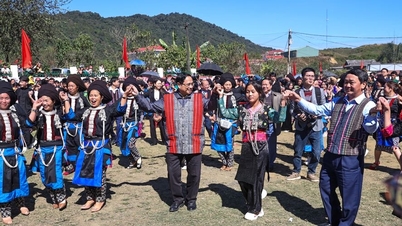

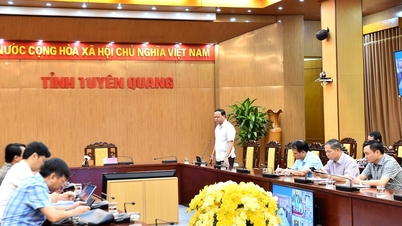





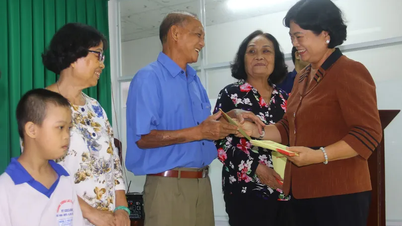

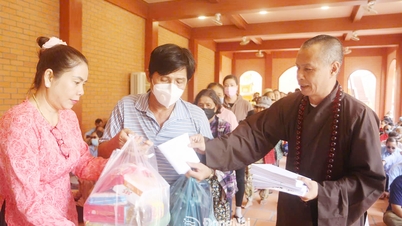





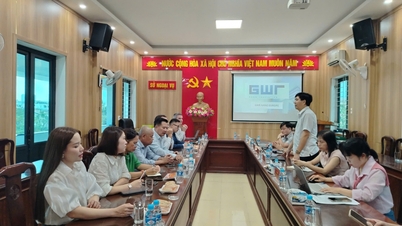
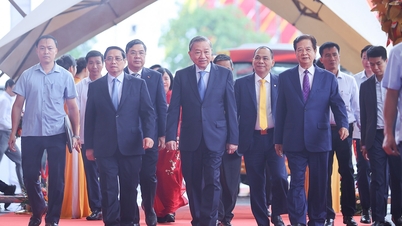
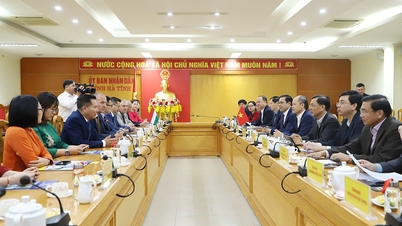
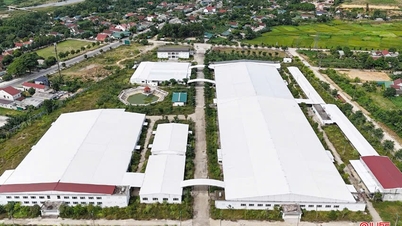
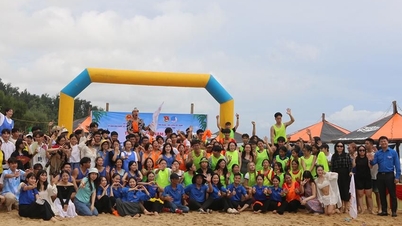
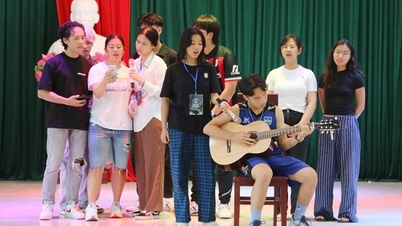
![[Photo] President Luong Cuong receives President of the Cuban National Assembly Esteban Lazo Hernandez](https://vphoto.vietnam.vn/thumb/1200x675/vietnam/resource/IMAGE/2025/9/30/4d38932911c24f6ea1936252bd5427fa)
![[Photo] Solemn opening of the 12th Military Party Congress for the 2025-2030 term](https://vphoto.vietnam.vn/thumb/1200x675/vietnam/resource/IMAGE/2025/9/30/2cd383b3130d41a1a4b5ace0d5eb989d)
![[Photo] The 1st Congress of Phu Tho Provincial Party Committee, term 2025-2030](https://vphoto.vietnam.vn/thumb/1200x675/vietnam/resource/IMAGE/2025/9/30/1507da06216649bba8a1ce6251816820)






















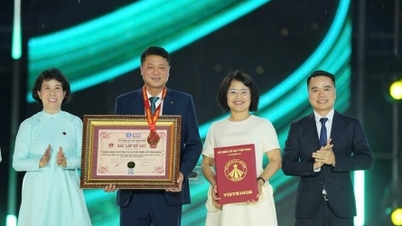


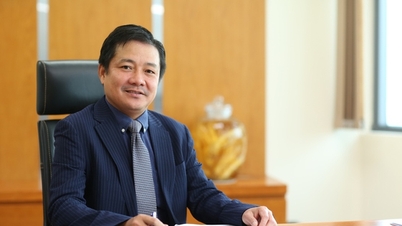

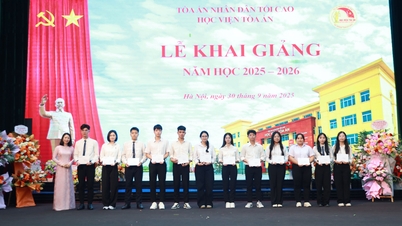
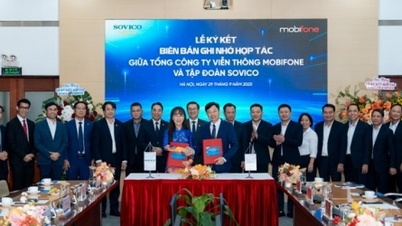






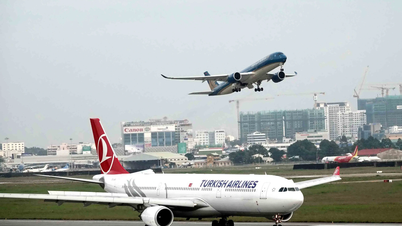
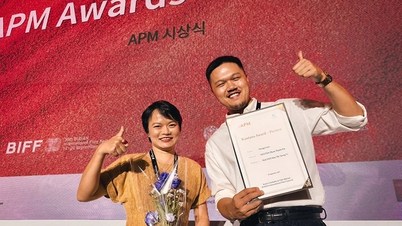





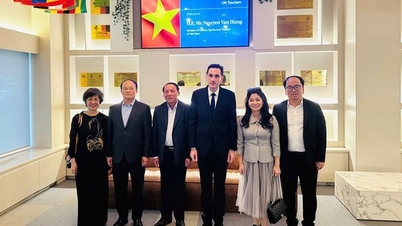




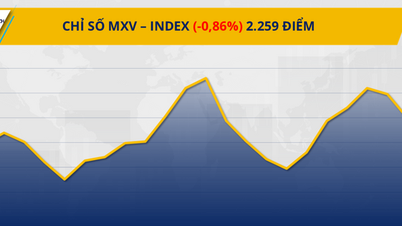

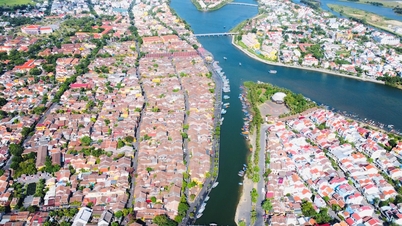

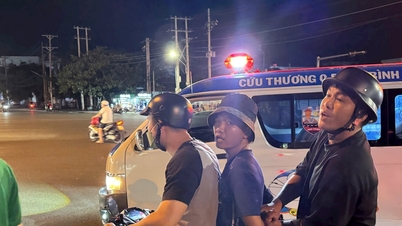



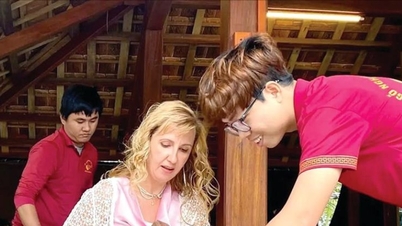













Comment (0)